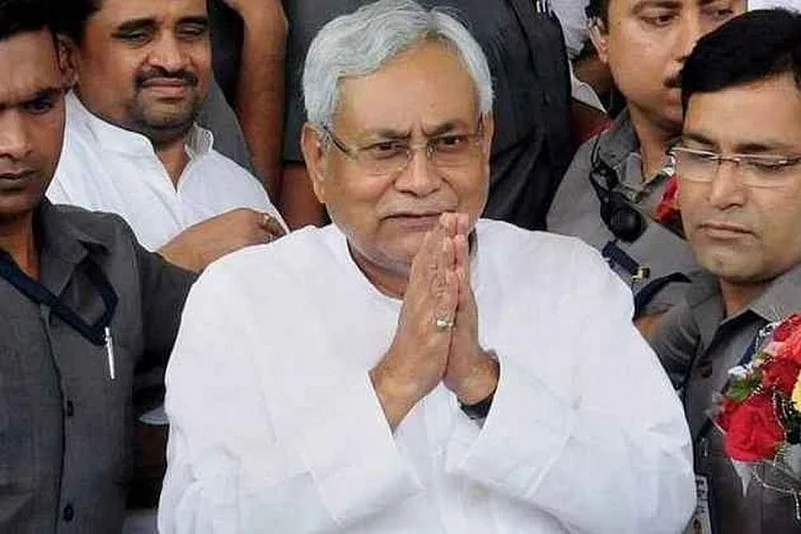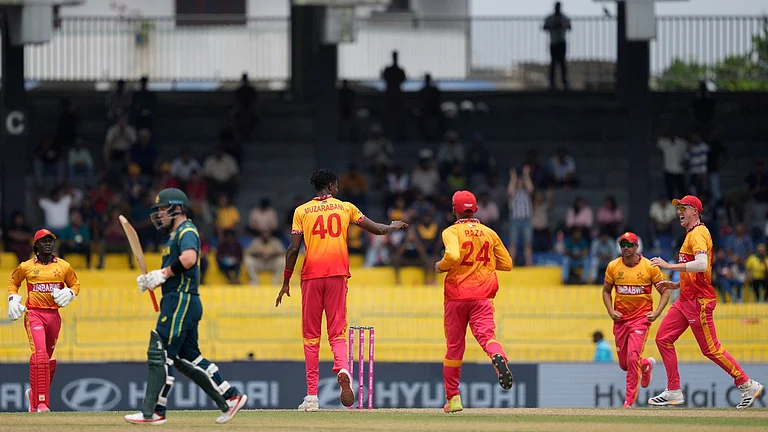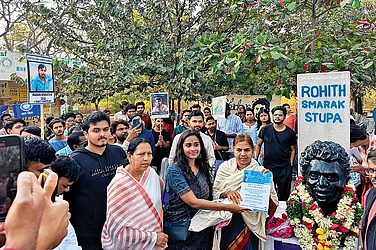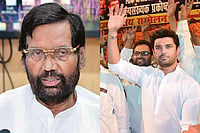Contrary to the exit poll predictions, NDA appears to be heading for forming the government in Bihar, if the initial trends are anything to go by midway through the counting.
After four hours of counting at 55 centres across 38 districts, the JD(U)-BJP combine in association with the HAM-S and Vikassheel Insan Party (VIP) is likely to make it, maintaining a lead in around 133 seats, leaving the RJD-led Mahagathbandhan far behind. Any alliance needs the magic figure of 122 in the 243-member Bihar assembly to get a simple majority.
The Mahagathbandhan leaders are still optimistic, asking people to wait for the final results, but if the current trends hold in the next couple of hours, Nitish may well be sworn in as the chief minister once again. If it happens, the 69-year-old leader will be the first chief minister since independence to have led his alliance to a fourth consecutive victory in Bihar.
Still, it may well turn out to be a pyrrhic victory of sorts for Nitish if JD(U) fails to win more seats than its partner BJP in this election. Since 2005, JD(U) has always played a big brother within the alliance by contesting and winning more seats than BJP. This time around, however, JD-U is likely to end up getting a lesser number of seats even though it contested more seats.
In this election, JD-U contested 115 seats while BJP fought from 110 seats. As per the latest trends, while the BJP was leading from about 74 seats, JD-U was ahead in 52. It may not harm Nitish’s prospects of taking over the reins of the state government once again since the BJP top brass has already announced that he would be the NDA’s chief minister even if BJP wins more seats.
But it will definitely weaken his position to a considerable extent within the alliance, where Nitish has always had an upper hand over the years. In fact, he began to cede his ground to BJP only after he returned to NDA in 2017, a year and a half after he had led the Mahagathbandhan to a massive victory in the 2015 assembly polls.
In 2019 Lok Sabha elections, JD(U) and BJP contested 17 seats each in Bihar leaving six seats for Ram Vilas Paswan’s Lok Janshakti Party (LJP). While the BJP and LJP won all their seats, JD-U lost one of its seats, Kishanganj to Congress. The BJP, however, offered only one berth to JD-U later in the Union Cabinet, forcing a miffed Nitish to stay out of the Modi ministry at the Centre.
Prior to 2019, JD(U) and BJP had always contested the elections on 60:40 basis, but they became equal partners now. Now, if BJP ends up winning about 15-20 more seats than JD-U, Nitish’s position will further weaken within the alliance.
Already, BJP leaders believe that the Modi magic has saved NDA and Nitish in this election since there was palpable anger against the Chief minister on the ground. A section of saffron party leaders is also of the opinion that BJP should stop playing the second fiddle to JD-U and start asserting its dominant role.
JD-U leaders, however, believe that Nitish is the most acceptable face of the NDA for the Chief minister’s post. In the past 15 years, he has assiduously cultivated the image of Bihar’s quintessential development man. They say that both parties need each other in Bihar, and Nitish remains the natural leader of the alliance. Maybe the party knows that Nitish always has the option to go back to Lalu Prasad Yadav’s RJD, as he did in 2015.
Whatever the final outcome, the emergence of BJP as the biggest party in NDA for the first time since 2000 will have an interesting bearing on Bihar politics in the future.


























